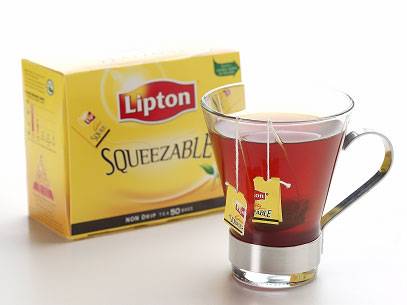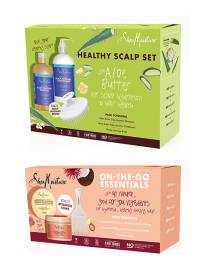Australians prefer to sacrifice after-work drinks in favour of tea breaks

When faced with the option of losing either a regular tea break, a gossip with work colleagues or Friday night drinks, more Australians would prefer to give up their after work drinks, according to results released in the Lipton T.E.A Report today.
To help them get through their daily "nine to five" grind, four in five Australians take up to three tea breaks a day. Nine out of ten Australians never feel guilty about taking a tea break. Only 1 per cent always feels guilty. Forty per cent take tea breaks with friends or colleagues, a further 40 per cent take tea breaks while working or multi-tasking, and 18 per cent take tea breaks alone as time out to enjoy silence and solitude.
"Australia is shedding its chilled out and laid back reputation. The report which Lipton T.E.A commissioned unveils a nation with nine in ten Australians experiencing some level of stress at work during the day. Supporting this, 80 per cent feel they can't keep 100 per cent focused at work for a full working day so it's a good idea to take a break and enjoy a cup of tea," said nutritionist Catherine Saxelby. "The Lipton T.E.A Report also found 50 per cent of Australians take 10 minutes or less for each tea break. Tea is an ideal refreshing beverage for work breaks, as it contains theanine to help you feel relaxed yet alert throughout the day. "Tea is also an important source of fluids and is a source of flavonoid antioxidants. If you drink tea on its own without sugar or milk it is low kilojoule (calorie) which is great for people watching their weight," Catherine Saxelby continued.
Below Catherine has provided answers that everyone needs to know to get through a stressful situation.
What is your best tip for workers not to stress?
Catherine Saxelby: To cope with stress, you first need to look after yourself in terms of light exercise, nutrition, enough sleep so your body is healthy and well-balanced - that's the background if you like. You'll feel stress much more if you've had little sleep, not done any exercise and eaten junk food all day. Then there are the small things that I suggest such as a tea break during the day, stretching or changing position so you're not in the same position all day (especially for computer work or repetitive tasks like taking things off shelves), switching off at some time during your day eg lunchtime, resting your eyes from the computer, a mini-meditation and more exercise.
Do females stress more than men?
Catherine Saxelby: No-one knows and this TEA Report survey did not address that. My own feeling is that women do stress more about the day to day things like meeting deadlines, juggling work and family, arguments with friends or family, that sort of thing. Because women usually look after the minutiae of life like is there any milk in the fridge at home, then there's more things to do, to remember, to stop and buy for etc. More details, more tasks - and no-one to delegate to.
How can we cure stress?
Catherine Saxelby: I doubt it. And I don't think we'd want to! A small-moderate amount of stress is actually viewed as OK or even desirable by the researchers - it's what pushes you on and propels you to work harder and achieve more. It's all about how much. Too little stress means a life perpetually on holiday while too much causes ill-health and robs you of your enthusiasm and vitality.
What methods work best to relax during stressful times?
Catherine Saxelby: Breathing and slowing down your breath - which is what happens when we meditate.
Visualisation - thinking about a past holiday or recalling a funny joke
Reminding yourself of the big picture - don't sweat the small stuff!
Being 'in the moment' - so you're not thinking about what you have to do next but concentrating on the task at hand
Eating slowly - sit down, chew each mouthful slowly, look at what you're eating - not bolting sometime down as you walk
Is a cup of tea the best way to feel alert during the day?
Catherine Saxelby: I believe so. Tea is somewhat unique compared to other beverages - it has low to moderate levels of caffeine (one-third to half that of coffee) and it contains theanine, a natural amino acid that has the ability to help you stay relaxed yet alert. Prof Janet Bryan from Uni of South Australia believes that this combination of low caffeine with theanine is special and accounts for tea's well-known ability to both relax and refresh you.
A recent Australian review, cconducted by Dr Bryan, has analysed the findings from 15 peer-reviewed studies on the benefits of theanine and caffeine in tea and how they work together. It reveals that tea, consumed regularly throughout the day, can help maintain alertness, attention and accuracy, and soften the more acute negative effects of higher doses of caffeine.
Tea is also a great source of antioxidants known as flavonoids. Antioxidants help maintain healthy cells and tissues by reinforcing our body's natural defence system and may slow the ageing process and ward off cancer.
And it contains virtually no kilojoules or calories when drunk on its own (without milk or sugar) so good for anyone watching their weight.
Would you recommend caffeine?
Catherine Saxelby: I don't recommend caffeine but I understand why people appreciate it. I like to say that caffeine is a double-edged sword - on one hand, we love it for the boost to our concentration and how it overcomes fatigue. On the other hand, it creates its own problems if you over do it eg insomnia, upset stomach, the jitters, anxiety and irritability. The lift you get from an energy drink late at night can be directly attributed to its caffeine content - it's powerful stuff!
What other methods could we use to stay more alert?
Catherine Saxelby: Again use a couple of my tips like regular rest breaks and doing stretches and eye breaks. To stay more alert, it's important to eat regularly and I often give talks to Year 12 students who need to study hard for hours on end, especially before exams. The brain relies on glucose for its energy so you need to eat some carbs - ideally the better carbs like whole grain, low GI or high fibre. So a bowl of wholegrain cereal is going to last longer and be better for your brain than biscuits or chocolate. Having enough fluid (tea is good for hydration too) and eating fish for their omega-3s also helps.
What can you suggest to those who are easily distracted?
Catherine Saxelby: Set a timer for 10 minutes or 60 minutes. Tell yourself that you've stay focussed for that time and don't allow yourself to wander off until the timer goes off. It does work especially when you have a difficult or unpleasant task to do.
Write your goals and stick them up on the wall near your desk.
Remove distractions like mobile phone or people interrupting.
Would you suggest drinking your tea away from the desk or at the desk whilst working?
Catherine Saxelby: Doesn't matter - it's not instant. The benefits from tea spread over the day according to the research. They found 3-4 cups over the day produced the better mindset than not having any
How can we stay more focused whilst working?
Catherine Saxelby: Think I've answered this one already above - but I guess it does depend on what work you're doing. If it's something you like and find fun then I get there be no problem with stating focused! Which is why we're all looking for jobs we love and find rewarding!
How often should workers take breaks?
Catherine Saxelby: As a rough rule, every two hours. You can't sustain mental focus and concentration for much more.
*Catherine Saxelby's top 5 tips to get you through the working day with focus and concentration:
1. *Stop for a tea break to refresh and revive. Tea's theanine works to keep you alert yet relaxed over the day.
2. Take a stretch break every hour you work on the computer. This sends fresh oxygenated blood to your head, neck and shoulders.
3. Take time to really relax during your lunch break. Take a power nap or visualisation break for 10 minutes. Simply lie your head down on your arms on your desk, close your eyes and either sleep (if you can) or do a quick meditation to clear your head. Visualise yourself somewhere relaxing (such as a beach or a running creek) and allow yourself to relax and unwind in nature.
4. Give your eyes a break from the computer screen a couple of times each day. Gaze far away onto the horizon. Or rub your hands together to warm them up and hold them over your eyes for a few minutes. You'll feel recharged!
5. Don't email your colleague across the room. Get up and talk to her/him.

To help them get through their daily "nine to five" grind, four in five Australians take up to three tea breaks a day. Nine out of ten Australians never feel guilty about taking a tea break. Only 1 per cent always feels guilty. Forty per cent take tea breaks with friends or colleagues, a further 40 per cent take tea breaks while working or multi-tasking, and 18 per cent take tea breaks alone as time out to enjoy silence and solitude.
"Australia is shedding its chilled out and laid back reputation. The report which Lipton T.E.A commissioned unveils a nation with nine in ten Australians experiencing some level of stress at work during the day. Supporting this, 80 per cent feel they can't keep 100 per cent focused at work for a full working day so it's a good idea to take a break and enjoy a cup of tea," said nutritionist Catherine Saxelby. "The Lipton T.E.A Report also found 50 per cent of Australians take 10 minutes or less for each tea break. Tea is an ideal refreshing beverage for work breaks, as it contains theanine to help you feel relaxed yet alert throughout the day. "Tea is also an important source of fluids and is a source of flavonoid antioxidants. If you drink tea on its own without sugar or milk it is low kilojoule (calorie) which is great for people watching their weight," Catherine Saxelby continued.
Below Catherine has provided answers that everyone needs to know to get through a stressful situation.
What is your best tip for workers not to stress?
Catherine Saxelby: To cope with stress, you first need to look after yourself in terms of light exercise, nutrition, enough sleep so your body is healthy and well-balanced - that's the background if you like. You'll feel stress much more if you've had little sleep, not done any exercise and eaten junk food all day. Then there are the small things that I suggest such as a tea break during the day, stretching or changing position so you're not in the same position all day (especially for computer work or repetitive tasks like taking things off shelves), switching off at some time during your day eg lunchtime, resting your eyes from the computer, a mini-meditation and more exercise.
Do females stress more than men?
Catherine Saxelby: No-one knows and this TEA Report survey did not address that. My own feeling is that women do stress more about the day to day things like meeting deadlines, juggling work and family, arguments with friends or family, that sort of thing. Because women usually look after the minutiae of life like is there any milk in the fridge at home, then there's more things to do, to remember, to stop and buy for etc. More details, more tasks - and no-one to delegate to.
How can we cure stress?
Catherine Saxelby: I doubt it. And I don't think we'd want to! A small-moderate amount of stress is actually viewed as OK or even desirable by the researchers - it's what pushes you on and propels you to work harder and achieve more. It's all about how much. Too little stress means a life perpetually on holiday while too much causes ill-health and robs you of your enthusiasm and vitality.
What methods work best to relax during stressful times?
Catherine Saxelby: Breathing and slowing down your breath - which is what happens when we meditate.
Visualisation - thinking about a past holiday or recalling a funny joke
Reminding yourself of the big picture - don't sweat the small stuff!
Being 'in the moment' - so you're not thinking about what you have to do next but concentrating on the task at hand
Eating slowly - sit down, chew each mouthful slowly, look at what you're eating - not bolting sometime down as you walk
Is a cup of tea the best way to feel alert during the day?
Catherine Saxelby: I believe so. Tea is somewhat unique compared to other beverages - it has low to moderate levels of caffeine (one-third to half that of coffee) and it contains theanine, a natural amino acid that has the ability to help you stay relaxed yet alert. Prof Janet Bryan from Uni of South Australia believes that this combination of low caffeine with theanine is special and accounts for tea's well-known ability to both relax and refresh you.
A recent Australian review, cconducted by Dr Bryan, has analysed the findings from 15 peer-reviewed studies on the benefits of theanine and caffeine in tea and how they work together. It reveals that tea, consumed regularly throughout the day, can help maintain alertness, attention and accuracy, and soften the more acute negative effects of higher doses of caffeine.
Tea is also a great source of antioxidants known as flavonoids. Antioxidants help maintain healthy cells and tissues by reinforcing our body's natural defence system and may slow the ageing process and ward off cancer.
And it contains virtually no kilojoules or calories when drunk on its own (without milk or sugar) so good for anyone watching their weight.
Would you recommend caffeine?
Catherine Saxelby: I don't recommend caffeine but I understand why people appreciate it. I like to say that caffeine is a double-edged sword - on one hand, we love it for the boost to our concentration and how it overcomes fatigue. On the other hand, it creates its own problems if you over do it eg insomnia, upset stomach, the jitters, anxiety and irritability. The lift you get from an energy drink late at night can be directly attributed to its caffeine content - it's powerful stuff!
What other methods could we use to stay more alert?
Catherine Saxelby: Again use a couple of my tips like regular rest breaks and doing stretches and eye breaks. To stay more alert, it's important to eat regularly and I often give talks to Year 12 students who need to study hard for hours on end, especially before exams. The brain relies on glucose for its energy so you need to eat some carbs - ideally the better carbs like whole grain, low GI or high fibre. So a bowl of wholegrain cereal is going to last longer and be better for your brain than biscuits or chocolate. Having enough fluid (tea is good for hydration too) and eating fish for their omega-3s also helps.
What can you suggest to those who are easily distracted?
Catherine Saxelby: Set a timer for 10 minutes or 60 minutes. Tell yourself that you've stay focussed for that time and don't allow yourself to wander off until the timer goes off. It does work especially when you have a difficult or unpleasant task to do.
Write your goals and stick them up on the wall near your desk.
Remove distractions like mobile phone or people interrupting.
Would you suggest drinking your tea away from the desk or at the desk whilst working?
Catherine Saxelby: Doesn't matter - it's not instant. The benefits from tea spread over the day according to the research. They found 3-4 cups over the day produced the better mindset than not having any
How can we stay more focused whilst working?
Catherine Saxelby: Think I've answered this one already above - but I guess it does depend on what work you're doing. If it's something you like and find fun then I get there be no problem with stating focused! Which is why we're all looking for jobs we love and find rewarding!
How often should workers take breaks?
Catherine Saxelby: As a rough rule, every two hours. You can't sustain mental focus and concentration for much more.
*Catherine Saxelby's top 5 tips to get you through the working day with focus and concentration:
1. *Stop for a tea break to refresh and revive. Tea's theanine works to keep you alert yet relaxed over the day.
2. Take a stretch break every hour you work on the computer. This sends fresh oxygenated blood to your head, neck and shoulders.
3. Take time to really relax during your lunch break. Take a power nap or visualisation break for 10 minutes. Simply lie your head down on your arms on your desk, close your eyes and either sleep (if you can) or do a quick meditation to clear your head. Visualise yourself somewhere relaxing (such as a beach or a running creek) and allow yourself to relax and unwind in nature.
4. Give your eyes a break from the computer screen a couple of times each day. Gaze far away onto the horizon. Or rub your hands together to warm them up and hold them over your eyes for a few minutes. You'll feel recharged!
5. Don't email your colleague across the room. Get up and talk to her/him.

MORE





